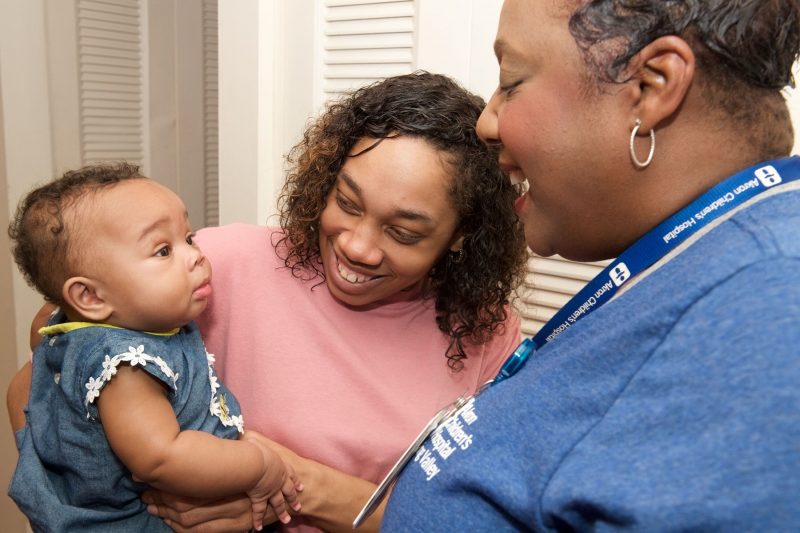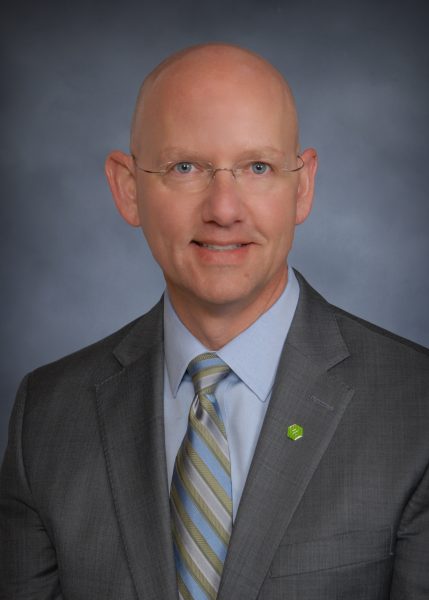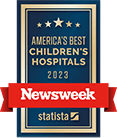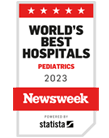
Akron Children’s community health workers make home visits to local families. It’s one of the ways they bridge the gap between communities and the health care system. The Huntington Bank Community Health Worker Fund finances three community health workers at our hospital.
At Akron Children’s, our donors make it possible for us to provide critical services that improve the health and well-being of children and their families.
Thanks to the generosity of the Huntington-Akron Foundation, that commitment extends far beyond treating the patients that come through our doors. Through its ongoing support of our community health worker program, the longtime corporate partner is helping us take a more proactive approach to reaching Akron’s most at-risk neighborhoods – one family at a time.
Neighborhoods in need
In urban areas like Akron, there’s a surprising factor that can often predict the overall health of children and families: their ZIP code.
It’s an unfortunate truth that public health officials know all too well. Marginalized communities face health disparities due to a number of factors – including their socioeconomic status, race or ethnicity, and geographic location.
These disparities are not limited to a single disease or health condition. But they’re evident in statistics for issues ranging from diabetes and heart disease to addiction and infant mortality. Because people living in poorer communities have less access to resources like healthy food, safe housing, good education and quality health care, their overall health suffers.
Since 2017, the Huntington Bank Community Health Worker Fund, which was established by the Huntington-Akron Foundation, has contributed nearly $450,000 to support our hospital’s community outreach efforts. This includes funding three community health workers who take a proactive, relationship-based approach to addressing the social determinants of health in our region. Their goal is to serve children and families in Akron’s most at-risk neighborhoods – including North Hill, Middlebury and Summit Lake.
“Our team of community health workers helps families access the information and resources they need to get healthy,” said Sam Formica, nurse manager for population health at Akron Children’s. “They serve as a bridge between communities and the health care system, and help our nurses and social workers facilitate care across the continuum.”
By building trust and strong relationships within these neighborhoods, community health workers educate families on how to best use the health and social service systems available to them. They also assist with tasks like picking up medications, coordinating transportation and scheduling appointments.
“It’s through those trusted relationships that you really find out what’s going on with the family in the home,” said Nick Browning, Huntington Bank’s Akron region president. “We want to get to the root cause, not just treat the symptoms. And I can’t think of a better partner than Akron Children’s to address the adverse effects of poverty.”

Nick Browning, Huntington Bank’s Akron region president
The philosophy behind this holistic, population health approach to care is that these relationships can produce long-lasting results.
“There are a lot of soft sides to health care that aren’t as easily demonstrated by data and metrics. But touching one family and helping them make a change has a ripple effect,” said Sam. “That’s how I see community health workers. Their grassroots efforts start ripples, which combine together to make waves.”
Helping Akron thrive
When Huntington Bank purchased Akron-based FirstMerit Bank in 2016, the organization also founded the Huntington-Akron Foundation, funding it with $2 million a year for 10 consecutive years.
“We were asked by our CEO, Steve Steinour, to come up with the mission of the Huntington-Akron Foundation,” said Nick. “In doing this, he gave us three priorities. It had to be sustainable, collaborative and highly impactful.”
To help identify the needs of the city’s low-income residents, Nick met with Akron Mayor Dan Horrigan, as well as local foundations and nonprofit organizations. During these conversations, it became evident that improving access to health care and eliminating health disparities would play an important role in the organization’s strategy.
“Many people are living in a condition of survival mode,” said Nick. “So our mission became helping individuals and families in Akron neighborhoods thrive.”
It takes a team
Through a partnership with the Pathways Community HUB (a service of Community Action Akron Summit), the Huntington-Akron Foundation funds community health workers across the city for organizations like our hospital. These care coordination agencies work together to track the progress of individuals and address barriers as they arise.
“We’re hoping to really affect systems-level change,” said Nick. “But we’re just one organization. We can’t do anything without like-minded partners like Akron Children’s that have a shared understanding of our investment.”
While it’s true that the Huntington-Akron Foundation depends on its partners to reach into the community, that work would never be possible without generous donor support.
“There is some reimbursement from Medicaid Managed Care plans for community health workers; but it is way too small to support our actual operations,” said Sam. “Without donors like the Huntington-Akron Foundation, we wouldn’t have a program.”
It’s truly a team effort. And together, Akron Children’s and the Huntington-Akron Foundation are making a difference in the lives of hundreds of families each year – impacting entire neighborhoods in the process.
Invest in a healthier future for kids across Ohio. For more information on business partnership opportunities, contact Machelle Syx, director of corporate alliance and special events, at 330-543-0137 or msyx@akronchildrens.org.








